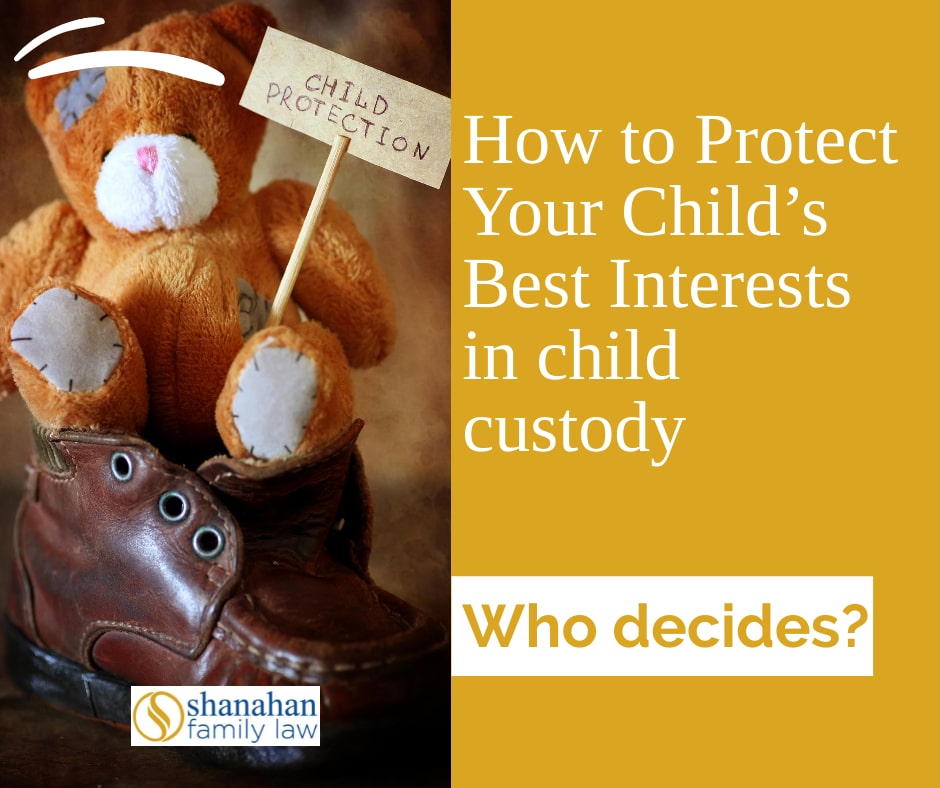Child custody is one of the most important considerations after divorce. Under the law, understanding your rights and responsibilities as a parent is essential.
The most crucial factor is that any decision regarding child custody must be in the child’s best interests. The Australian Family Law Act prioritises this over everything else. We will help you understand how to protect your child’s best interest in child custody in Australia.
 Key Takeaways from this article
Key Takeaways from this article
Here are the five key takeaways on child custody:
- The child’s best interests are the most important in determining child custody.
- Parents can come to an informal agreement on a parenting plan, which can be made legally enforceable through a consent order.
- If the parents cannot agree on child custody, a Court may make a parenting order to determine the arrangements.
- The Court may grant equal shared parental responsibility, sole parental responsibility, or complete custody to one parent.
- The Court may also determine the time each parent will spend with the child. In some instances, an order may be made to supervise visitations or restrict the parent’s access to the child.
Continue reading to gain a more in-depth understanding.
Determining custody of a child
The Family Law Courts prefer that parents agree on parenting arrangements. There are different ways you can establish custody of your child.
Legal Enforcement in Parenting Plans: Protecting Your Parental Rights
Parenting plans are an informal agreement. Typically dealing with parental responsibility and how much time a child spends with each parent.
Parenting plans should be in writing and signed by both parties. There are no rules regarding their structure. A plan can cover as much or as little as you consider appropriate.
We recommend making them as detailed as possible to avoid conflicts in the future. Some factors they can cover include the following:
- Who will be the primary carer;
- How time with the other parent will occur;
- How changeovers will occur;
- Taking care of educational and religious needs.
Everyone’s circumstances are different, and each parenting plan will be unique.
The downside to parenting plans is they are not legally binding. When you are on friendly terms, they might work fine. However, things change, and conflicts may arise. For this reason, it’s best to consider making your arrangements legally enforceable through consent orders.
Understanding Consent Orders
A Family Law Court consent order carries enforceable obligations. One that a parenting plan cannot achieve. Parties seeking consent orders must satisfy the Court that the terms are in the child’s best interests. The Court may reject your application if it does not meet this requirement.
Complying with Parenting Orders in Child Custody: Avoiding Penalties
While it’s best to collaborate on parenting matters, this isn’t always possible. When parents can’t agree on child custody, the Court can’t hear the arguments from the parties and then decide on arrangements for the children through a parenting order.
Breaching the terms of the order will lead to varying penalties depending on the severity and frequency of the breaches.
Equal shared parental responsibility vs sole parental responsibility
Principles of Family law believe children should enjoy a meaningful relationship with both parents. The Court presumes both parents should have equal parental responsibility. This presumption means both parents have decision-making power regarding their child.
The Court may grant sole parental responsibility to one parent under exceptional circumstances. Sole responsibility often gives one parent control over their child’s welfare, such as their education. A parent may also receive complete responsibility for the child.
Any concern over the child’s mental and physical health weighs heavily in custody in child custody issues. Evidence of physical or psychological harm to the child may warrant sole parental responsibility.
If a party seeks sole parental responsibility, they must prove that removing the other parent’s responsibility is necessary for the child’s welfare.
Factors considered in determining custody of the child in parenting time
A court order won’t assume equal time spent with both parents is in the child’s best interests. However, suppose the Court orders equal shared parental responsibility. In that case, it may consider whether a child spending equal time with each of the parents would be in the child’s best interests.
Many factors determine the appropriate time for each parent to have with their children. The Court might consider the parent-child relationship and the parent’s ability to cater to the child’s needs and well being. The child’s perspective may also be relevant.
The Court may not consider equal time appropriate. In that case, it will decide whether substantial and significant time spent with the other parent is best for the child. Substantial and significant time:
- Means spending time with the child on weekends and holidays;
- Means spending time with the child outside of weekends and holidays;
- Involves the parent in the child’s daily routines;
- Includes the parent in events important to the child;
- Includes the child in events significant to the parent.
The arrangements should be reasonable for the parents to implement based on a few factors:
- How far apart the parents live;
- The parent’s ability to communicate and resolve difficulties;
- Whether the arrangement is in the best interests of the child;
- Any other factor the Court finds relevant.
Get in touch and learn more
It is crucial to seek expert legal advice when dealing with child custody issues due to the high emotions and stress involved. The Shanahan Family Law team can also guide you in obtaining a child recovery order, thereby protecting your parental rights. Contact us to explore how we can assist you in your child’s best interest.

